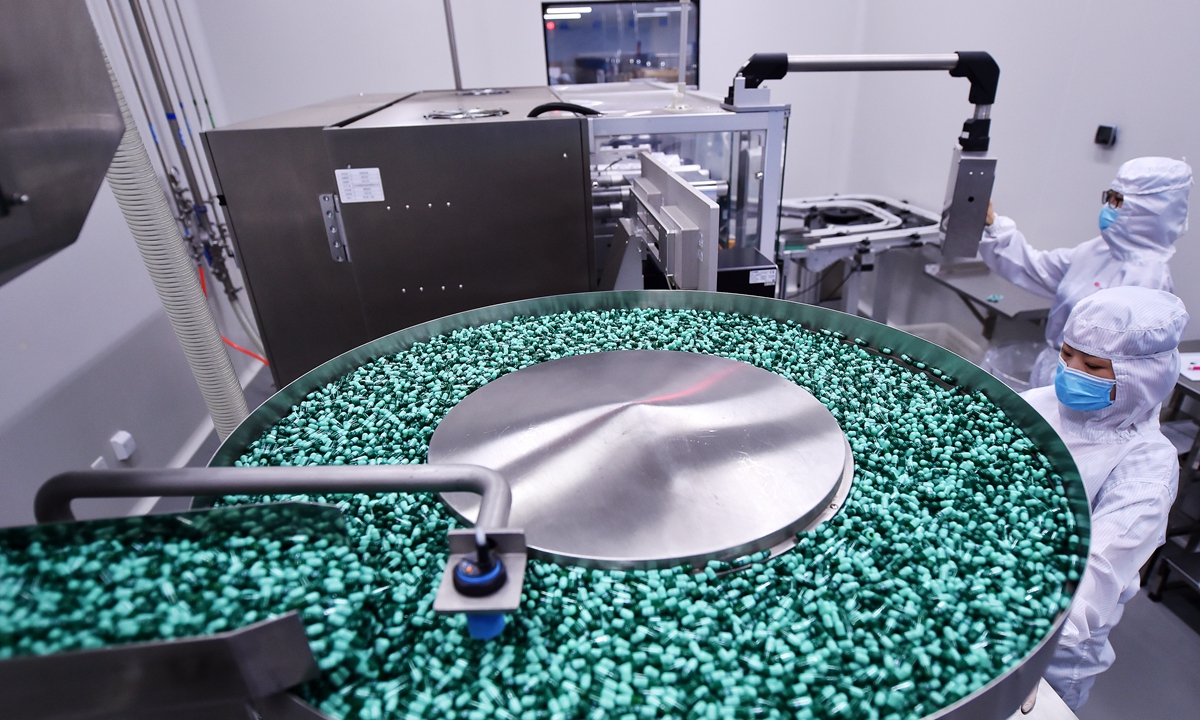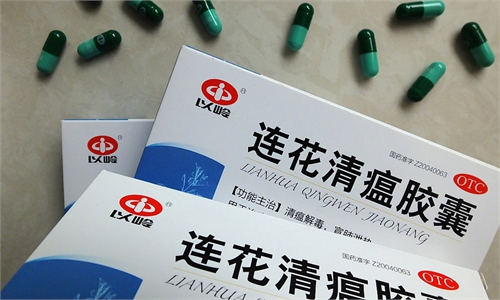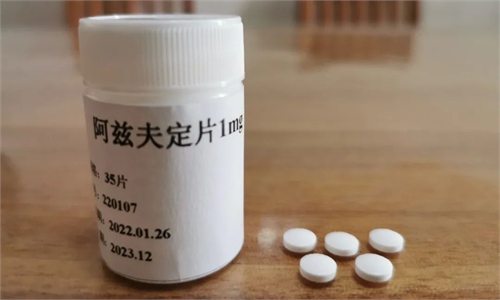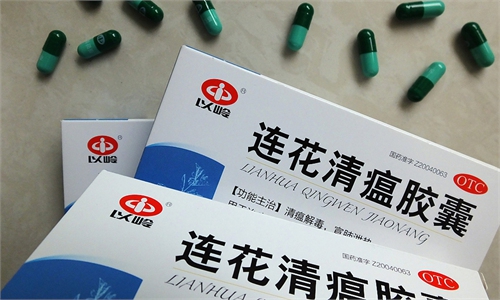Shares of drug, PPE makers rise as companies ramp up production of drugs, masks to meet surging demand

Filled capsules awaiting aluminum plastic quality testing at a production line of Shijiazhuang Yiling Pharmaceutical. Photo: Courtesy of Shijiazhuang Yiling Pharmaceutical
A total of 64 publicly traded pharmaceuticals companies, out of a total of 68 anti-COVID drug producers, rallied on Monday as the stock market opened after a weekend filled with media reports of such drugs being in hot demand.
Across the whole pharmaceutical sector, shares rose by 2.3 percent, with 20 shares soaring by at least 10 percent or more.
Hubei Biocause Pharmaceutical Co, one of the country's major manufacturers of ibuprofen, which is used for treating pain, fever and inflammation, saw share prices surge 20.01 percent.
Shares of Shandong Xinhua Pharmaceutical Co, another major maker of ibuprofen, rose by 10 percent in just four minutes after the market started trading on Monday, hitting the daily limit. Shares of A-share Xinhua Pharmaceutical rose 68 percent in the past six trading days, and its shares in Hong Kong market have risen a staggering 148 percent this month.
Ibuprofen is listed as the drug used for home treatment of COVID-19 infections, together with other drugs including aspirin and Chinese herbal medicine Lianhua Qingwen and Huoxiangzhengqi liquid, by the Joint Prevention and Control Mechanism of the State Council on Wednesday.
Chinese drug producer Shijiazhuang Yiling Pharmaceutical, amid the booming demand for the company's popular medicine Lianhua Qingwen, closed 1.7 percent higher on Monday.
The National Administration of Traditional Chinese Medicine on Saturday published a list of traditional Chinese medicines and therapies to cope with coronavirus infections.
As Western drugs including Fenbid, a pain reliever, and Contac, a nasal decongestant tablet, and Chinese medicines such as Lianhua Qingwen are hot sellers, drug-makers are increasing production to meet growing demand, as regulators also weighed in to ensure production and price stability.
In Beijing, the municipality’s drug watchdog said it has sent 12 inspectors to be stationed around the clock at 11 manufacturers of drugs that can help cope with COVID-19 symptoms from Saturday, the Beijing Daily reported on Monday.
The purpose of the inspections is to ensure the quality of drugs, normal supply and smooth circulation channels so as to ensure people’s demand for drugs, the regulator said.
Zhang Zhanhong, a senior executive at UK-based Haleon, the maker of Fenbid and Contac, told the Global Times on Monday the company has been seeing a gradual increase in demand from retail and other sales channels for its products.
“But our company has prepared, and doubled down on production on a 24/7 basis from two months ago,” Zhang said, noting that there have been no issues with the delivery of the company’s products.
German pharmaceutical firm Bayer said that it is “doing all it can” to ensure the supply of its Berocca vitamin C effervescent drink tablets and chewing tablets, and the distribution of its products is smooth, according to a statement sent to the Global Times by Bayer on Monday.
BeijingChunfeng Pharmaceutical said it can produce 50,000 boxes of Shuanghuanglian granules every day, which are supplied to all medical institutions and pharmacies in Beijing, with production lines operating 24 hours each day, according to the Beijing Daily.
Producers of personal protective equipment are also increasing production.
Shenzhen-based Winner Medical Co, maker of N95 masks, told investors at an online event that it is expanding the scale of production. The company’s shares rose 6.89 percent to close at 81 yuan ($11.6) on Monday.
As a mainstay of epidemic prevention and control, N95 masks are being churned out around the clock while the price at online malls is 5 yuan per piece, the company said, adding that its direct retail sale channels won’t inflate prices.
Li Tianquan, co-founder of domestic healthcare big data platform yaozh.com, told the Global Times on Monday that he believes concerns of medicine supply snags is unfounded, and expects empty shelves at pharmacies will be soon refilled after China’s massive drug-making industry goes full throttle, as “there is big headroom in production capacity and the acceleration will also be fast.”
Even if people continue to buy large volumes, the empty shelves can still be refilled, Li said.



